Author Archives: April Froncek
Author Archives: April Froncek

In late 2020, as Portugal prepared to take over the rotating Presidency of the Council of the European Union (EU), the Internet Society’s Portugal Chapter began ramping up its advocacy against worrying new plans to create encryption backdoors. The Council of the European Union, in a resolution in November 2020, and the European Commission (EC), in a […]
The post Confronting European Encroachment on Encryption appeared first on Internet Society.
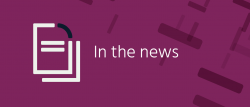
Help is on the way: The U.S. government is offering a $50-a-month broadband subsidy for people who took a financial hit during the COVID-19 pandemic, CNet reports. The subsidies are part of a COVID-19 relief package passed by Congress in December. More than 825 broadband providers, including AT&T, Comcast and Verizon, are participating. Online soldiers: An […]
The post The Week in Internet News: U.S. Rolls Out Broadband Subsidy appeared first on Internet Society.

This article was originally published in The Inuvik Drum. Town pens letter of support for idea that would expand Internet activity in Delta Inuvik Town Council has penned a letter of support for establishing an “Internet XChange Point” (IXP) in the Beaufort Delta, should one or more of the NWT’s Telecommunications companies choose to pursue […]
The post Internet Society Offers to Assist Establishing “XChange Point” in Inuvik appeared first on Internet Society.

During a recent broadcast of an Italian Series A Championship football match, something extraordinary was happening behind the scenes. Local Internet traffic remained local. Cristiano Zanforlin, Chief Commercial Officer of Milan Internet Exchange (MIX), Flavio Luciani, Chief Technology Officer of Consorzio Namex, and Luca Cicchelli, Interconnection Manager of Consorzio TOP-IX, explain how Italian IXPs helped […]
The post Finally! Local Traffic Remained Local appeared first on Internet Society.

By Electronic Frontier Foundation, Mozilla, and The Internet Society
As people learn more about how companies like Google and Facebook track them online, they are taking steps to protect themselves. But there is one relatively unknown way that companies and bad actors can collect troves of data.
Internet Service Providers (ISPs) like Comcast, Verizon, and AT&T are your gateway to the Internet. These companies have complete, unfettered, and unregulated access to a constant stream of your browsing history that can build a profile that they can sell or otherwise use without your consent.
Last year, Comcast committed to a broad range of DNS privacy standards. Companies like Verizon, AT&T, and T-Mobile, which have a major market share of mobile broadband customers in the U.S., haven’t committed to the same basic protections, such as not tracking website traffic, deleting DNS logs, or refusing to sell users’ information. What’s more, these companies have a history of abusing customer data. AT&T, Sprint, and T-Mobile, sold customer location data to bounty hunters, and Verizon injected trackers bypassing user control.
Every single ISP should have a responsibility to protect the privacy of its users – and as mobile internet access continues Continue reading

Early last year, as people across the world quarantined to slow the spread of the COVID-19 virus, the Internet became critical to maintaining a semblance of routine and getting the latest lifesaving information. But there was a stark reality. Those without Internet access would have to grapple without this vital resource amidst a global pandemic.
Internet Society volunteers around the world understood the gravity of the situation. They jumped in to enable secure access.
In North America, NYC Mesh, a community network supported by the Internet Society, rushed to connect as many households as they could. While it was still safe to do so, they crossed rooftops to bring connectivity to some of the city’s most underserved.
In Europe, the Internet Society Italy Chapter launched SOSDigitale to mobilize resources and volunteers to respond to urgent technology gaps. The Portugal Chapter followed with their own SOS Digital campaign to donate computers and digital support to at-risk youth.
And in Latin America, residents of El Cuy, in remote Patagonia, Argentina, were able to reduce their potential exposure to COVID-19 via their newly-established community network, accessing medical prescriptions, education, banking, and government resources online.
No one could have predicted the events of 2020. Continue reading
Here at the Internet Society, we believe that the Internet is for everyone. Our work focuses on ensuring that the Internet remains open, globally-connected, trustworthy, and secure.
In 2020, we saw the world change in ways that no one could have anticipated. Because of this, like so many other organizations, we had to assess our current and future plans and evaluate the resources available to us. As a result, we have made some changes to our activities for the upcoming year.
Moving into 2021, we will reduce activities related to our Open Standards Everywhere (OSE) and Time Security projects.
We still deeply believe that open Internet standards and securing the Internet’s time synchronization infrastructure are critical components for building an open and trustworthy Internet. So, while OSE and Time Security will no longer be standalone projects next year, we will continue to promote and defend these concepts through our other projects, initiatives, and activities.
Our work in 2020 in both these areas has had a measurable impact and many successes, which we will document in the 2020 Impact Report that will be published in early 2021. We will continue to finish work in progress on Time Security and OSE Continue reading

This abridged article by Francisca Hector was originally published in Tasty Bytes.
Arguably food is the most important item on the planet. The current food system; however, has many inefficiencies and food security continues to be a global challenge.
In addition to this, conscious consumption has reached new heights as consumers demand that their food is not only safe, nutritious, and affordable, but they also want to ensure that their food is ethically sourced and the harvesting and production processes reduce waste.
For many, there is the belief that the food system needs to be fundamentally disrupted. While there have been some attempts to use technology to make better decisions around food, these technologies are not widely available. Without widespread availability and adoption, the impact of any technology is hard to ascertain.
This and other concerns are what spurred the creation of The Internet Society Special Interest Group for the Internet of Food (SIG-IOF), which is a discussion room for next-gen Internet backbone standards for digital aspects of food. In short, that means that when food goes data, this group would like to facilitate the Internet standards for how that data is handled.
With 110 chapters located all over Continue reading
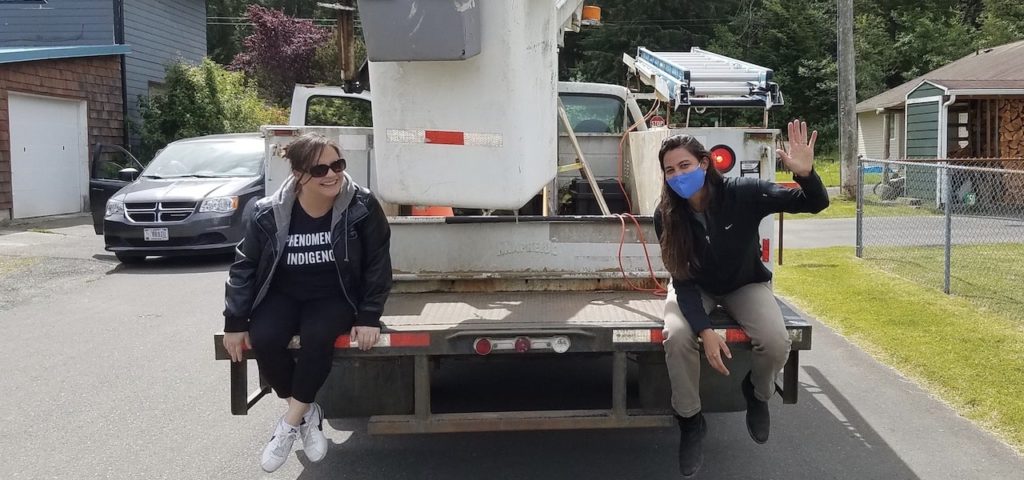
The Makah Tribe has lived around Neah Bay at the northwest tip of what is now Washington State since time immemorial. It is a breathtaking landscape of dense rainforest and steep hills, far removed from any major urban center.
But for all its beauty, the hills, forests, and remoteness have made it difficult for the community to access quality high-speed Internet – and even cell and radio service.
In some areas, cell service was so poor that only certain spots worked: one community member had to go outside and stand beside a rhododendron bush to make a call or send a text. While Facebook is the main way people stay connected, many couldn’t access it. The local clinic struggled to use electronic records – it sometimes took upwards of 40 minutes just to get into the system. Even emergency responders, such as police and the fire department, couldn’t rely on the dispatch system that required Internet connectivity to operate.
And then the coronavirus began to sweep the world. The Makah closed the reservation to outsiders to protect the community. And its connectivity challenges became even more problematic. Continue reading
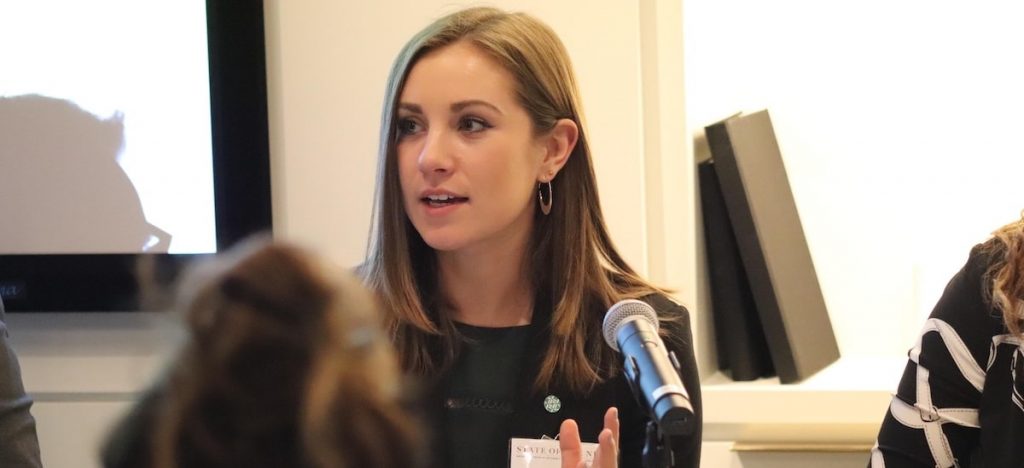
This interview was originally published in Technical.ly.
The Internet has long been a connector beyond the physical. Now, it’s the only reason people are able to see their faraway loved ones and complete remote projects with their coworkers amid pandemic-prompted social distancing. It’s a great moment for the technology — and for hackers.
Reston, Virginia-based Internet Society is an advocacy organization that, in its words, promotes “the development of the Internet as a global technical infrastructure, a resource to enrich people’s lives, and a force for good in society.”
Katie Jordan, a resident of Philadelphia’s Graduate Hospital neighborhood, joined the team in 2018 after serving as a policy and program manager at Next Century Cities where she worked with emerging tech issues. As Internet Society’s senior policy manager, Jordan develops and advocates for policy related to Internet access and security.
She talked to Technical.ly about what the Internet Society is focusing on now and if COVID-19 is going to change the way we use the Internet.
Technical.ly: What does Internet Society do when there’s not a pandemic, and how has your work shifted recently?
Jordan: It’s made everything feel more urgent. We’re not doing anything Continue reading
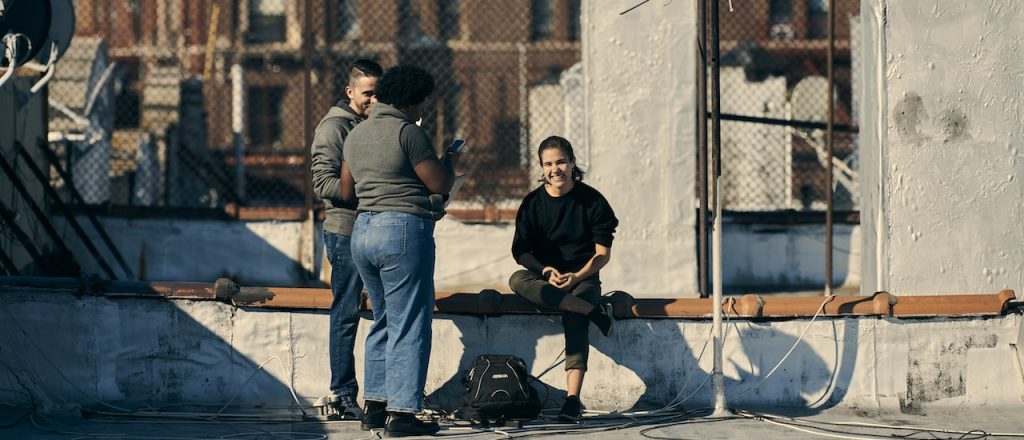
NYC Mesh connects people to “critical Internet lifeline” during COVID-19 pandemic
As COVID-19 spreads across the globe, cities are slowing to a halt and millions of people are self-isolating to help slow the spread of the virus.
The Internet has never been more important. It is a critical for up-to-date health information, a necessity for students to continue their education while at home and for their parent to continue working, enables access to government programs and supports like unemployment insurance, and can help alleviate the effects of social isolation.
Yet, in New York City alone, 1.5 million people don’t have access from their homes or mobile devices, largely due to high costs of connectivity.
A group of volunteers is working around the clock to change that, one antenna at a time.
NYC Mesh, a community network supported by the Internet Society, kicked into high gear earlier this month in advance of the pandemic, getting as many people connected as possible while it was still safe to do so, prioritizing those with no other Internet access. The ramp up –going from a couple of installs a week to one or more a day – was “a mad rush of Continue reading

Today we’re celebrating Data Privacy Day, which is all about empowering people and organizations to respect privacy, safeguard data, and enable trust.
Let’s face it, protecting your privacy can feel overwhelming. It can seem like we conduct our entire lives online and it’s hard not to notice headlines about our privacy being undermined, like law enforcement trying to gain access to encrypted data. But whether you know it or not, you’re making choices about what you share and how you share it each day. These seemingly-small actions can make a big impact.
You might already be doing some of these, but here are six actions you can take to protect your privacy:
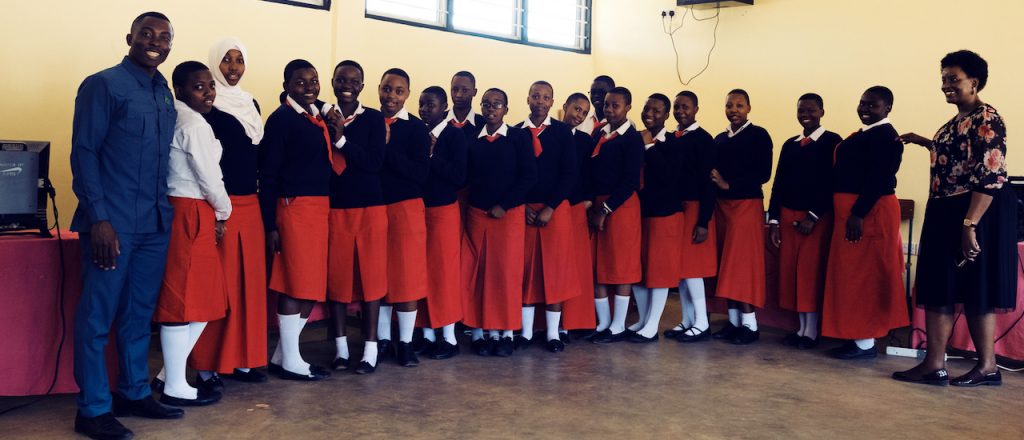
Nearly half of the world lacks Internet access. But in rural Africa, the number is much higher: 86% of people are unconnected, with fewer women having access than men.
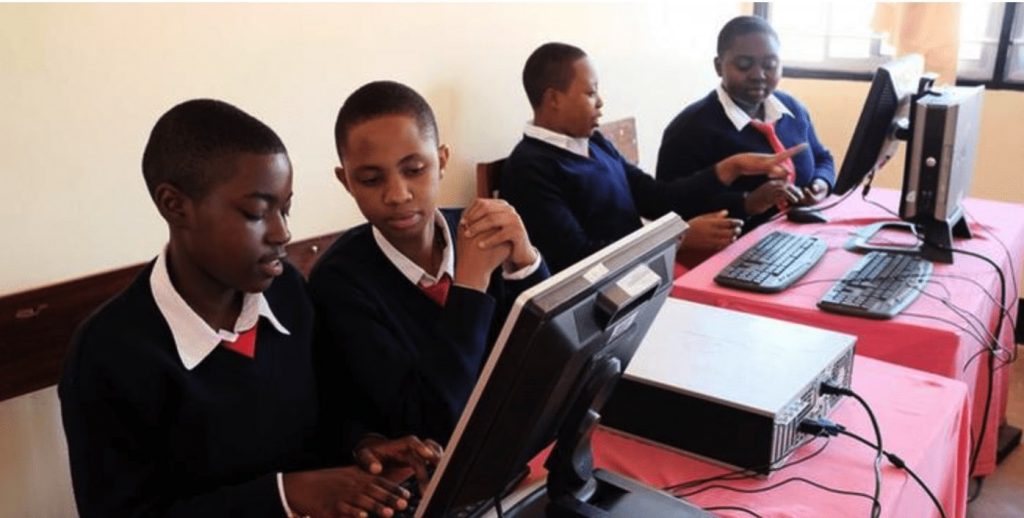
Deutsche Welle, Germany’s public broadcaster, shares the story of the Kondoa Community Network, a joint project of the Internet Society Tanzania Chapter and the University of Dodoma, that’s helping to close the digital divide. It’s connecting schools and community centers – and making a difference to young women.
Want to hear more?
Last year, Deutsche Welle profiled three additional community networks in Zimbabwe, the Republic of Georgia, and South Africa. Read about the community networks and listen to their stories!
The Internet is for everyone. Learn more about community networks and join the global movement to help close the digital divide!
Images ©Internet Society/Nyani Quarmyne/Panos Pictures
The post Deutsche Welle Spotlights Tanzania’s Kondoa Community Network appeared first on Internet Society.
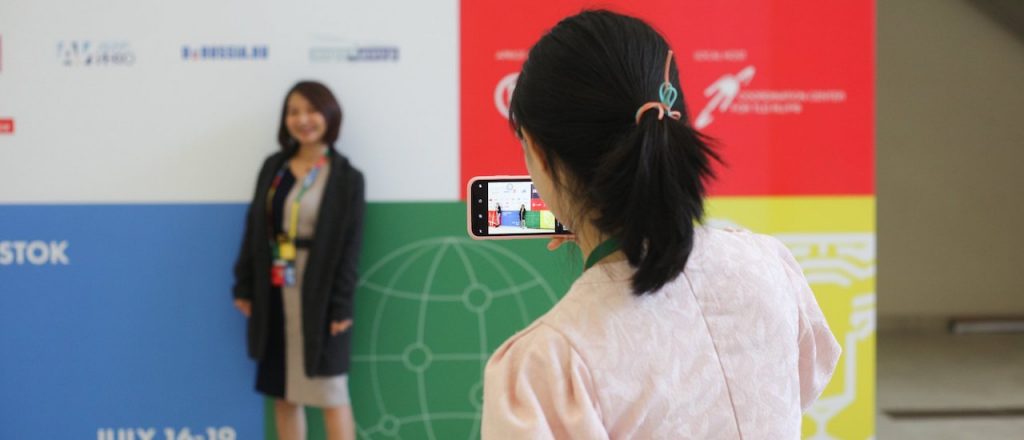
The Internet Society, APNIC, and Coordination Center for TLD .RU sponsored 20 fellows to the 10th Asia Pacific Regional Internet Governance Forum (APrIGF 2019) held in Vladivostok, Russia in July. Let’s meet three fellows from Bangladesh, Myanmar, and Singapore as they share their experience at APrIGF 2019, as well as their interests and future aspirations.
Shah Zahidur Rahman, Technology Business Consultant, Bangladesh
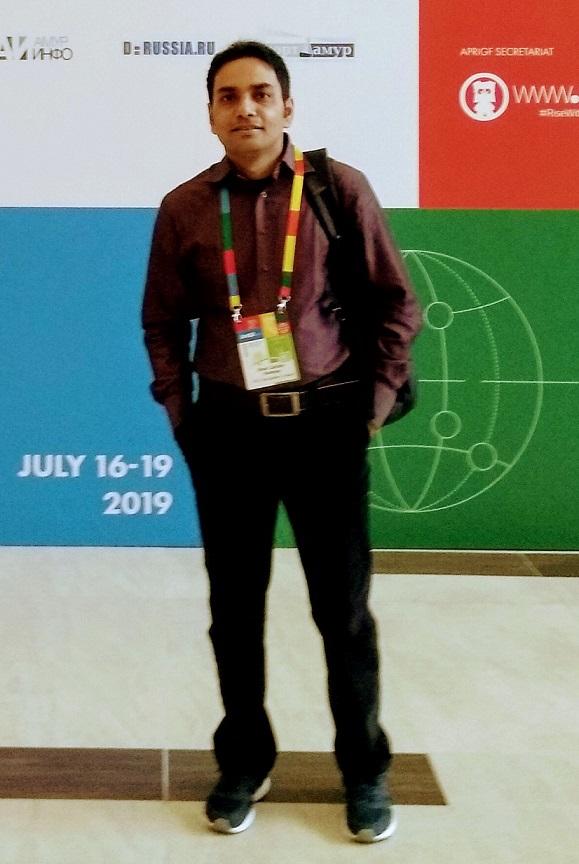
I completed my Bachelor’s degree in Computer Science and Engineering from the American International University-Bangladesh and have many technical course certifications. Currently, I am a technology business consultant for small- and medium-sized enterprises and startup companies. I have also been mentoring youths in the Youth4IG coalition to become further engaged in Internet Governance issues. I have been an active member of the Internet Society Bangladesh Chapter since 2014. I am also a member of the Bangladesh School of Internet Governance Programme Committee and Fellowship Committee, the Bangladesh Internet Governance Forum, and the ICANN Non-Commercial Stakeholder Group and Non-Commercial Users Constituency. Additionally, I am a former fellow of IETF, APSIG and APAN.
This year at APrIGF 2019, my main interest was in one of the six subthemes on Emerging Technologies and Society, and here are some of the key things I learned Continue reading

A full day before Internet Society’s President and CEO Andrew Sullivan takes the stage at the world-renowned policy institute Chatham House at Cyber 2019, you’ll have a chance to have an in person discussion with him about the changes regulation may be bringing to our online world.
From the way we connect, share, learn, and work, the Internet has changed the world.
It has also brought challenges – and increasingly, governments have addressed these challenges with regulation.
But could this create unintended consequences? Is it possible to regulate the Internet while protecting its openness, interoperability, and global reach? The Internet Society in collaboration with Chatham House will explore these questions tomorrow at How Regulation Could Break the Internet: In Conversation with Andrew Sullivan.
Here’s how you can join:
The post How Regulation Could Break the Internet: In Conversation with Andrew Sullivan appeared first on Internet Society.
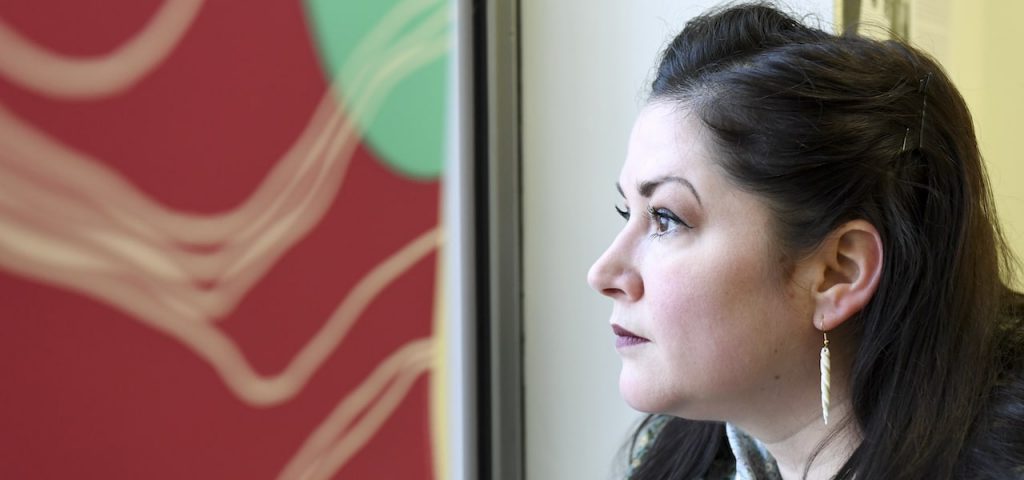
Over 20 million people in North America lack access to fast, affordable, and reliable Internet. In October 2018, the Indigenous Connectivity Summit gathered over 150 Indigenous leaders, policymakers, network operators, and community members in the Canadian Arctic town of Inuvik to focus on a common goal: bringing fast, affordable, and reliable Internet to Indigenous communities. The event featured success stories of community networks across North America to demonstrate the power of communities to lead their own Internet solutions, and how anyone can support them.
Crystal Gail Fraser, a Gwichyà Gwich’in woman who calls Inuvik home, sees collaborative Internet solutions as a critical path to self-determination for her community.
As I stepped off the plane in Inuvik, I inhaled the arctic air. I observed the scenic landscape of Dinjii Zhuh (Gwich’in) and Inuvialuit territory, taking in the familiarity: the snow-covered rolling hills, stunted spruce trees, and ice crystals in the air.
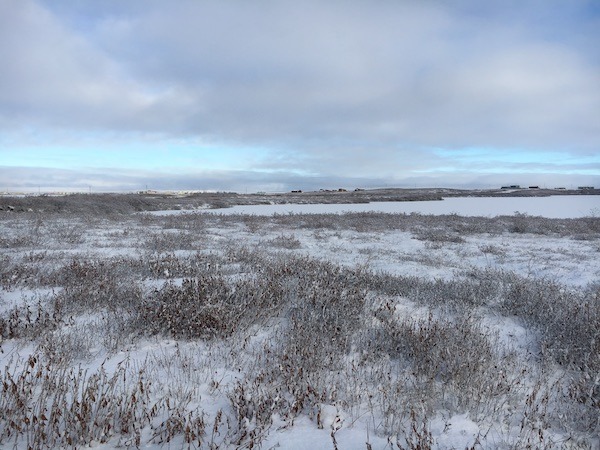
This land and all that it holds, means, and represents, has been critical to Dinjii Zhuh culture, economies, and lifestyles since Ts’ii Dęįį (Time Immemorial).
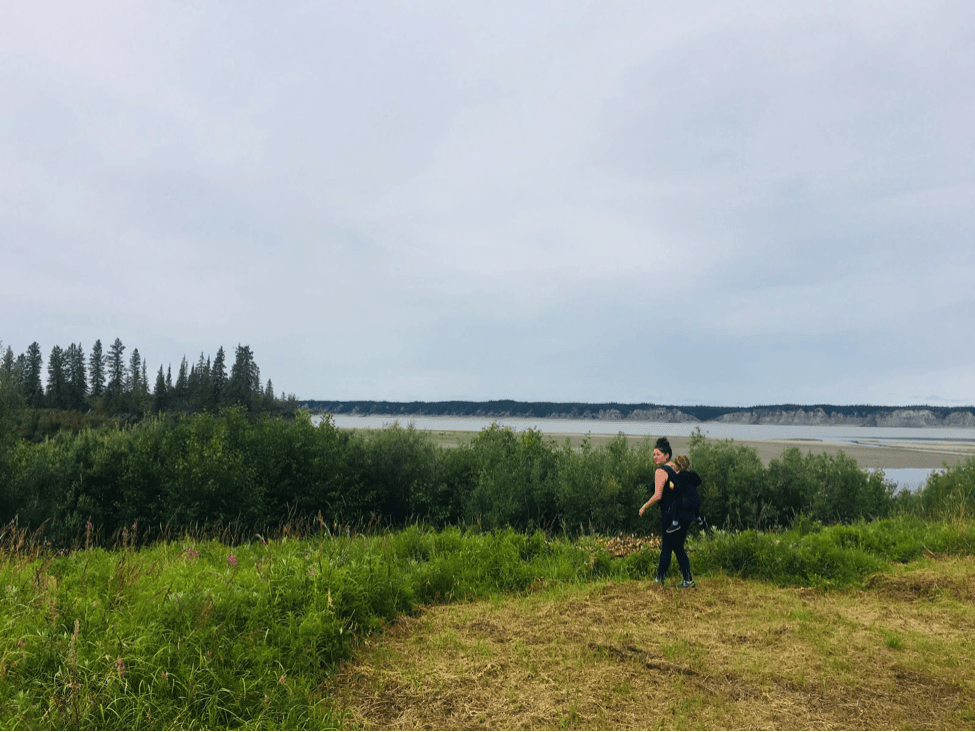
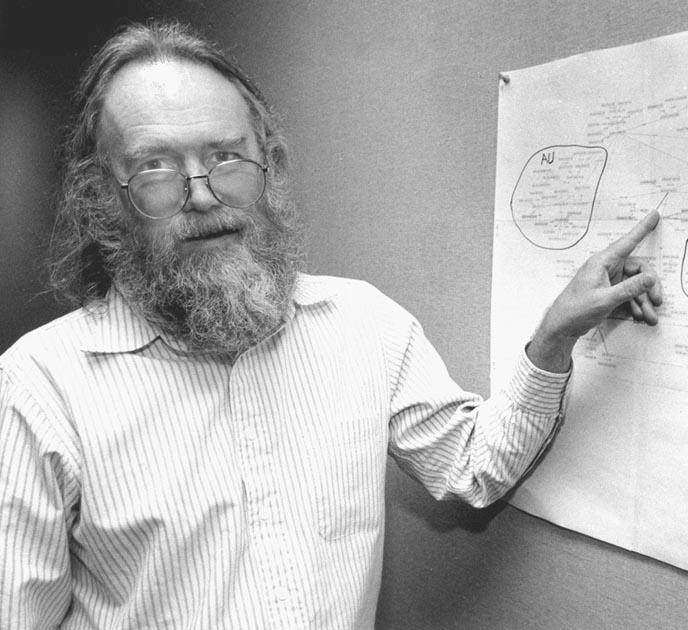
We are pleased to announce that nominations for the 2019 Jonathan B. Postel Service Award are now open. Do you know someone who should be a recipient?
This annual award is presented to an individual or organization that has made outstanding contributions in service to the data communications community and places particular emphasis on those who have supported and enabled others.
Nominations are encouraged for individuals or teams of individuals from across the data communications industry around the world who are dedicated to the efforts of advancing the Internet for the benefit of everybody.
Past Postel award winners include Steven G. Huter for “his leadership and personal contributions at the Network Startup Resource Center that enabled countless others to develop the Internet in more than 120 countries,” kc claffy for her pioneering work on Internet measurement, Mahabir Pun for his key role in bringing the Internet to rural Nepal with the founding of the Nepal Wireless Networking Project, and Bob Braden and Joyce K. Reynolds for their stewardship of the RFC (Request for Comments) series.
The signature crystal globe and a USD 20,000 prize will be presented at the IETF 105 in Montreal, Canada (20-26 July 2019) to the chosen Continue reading
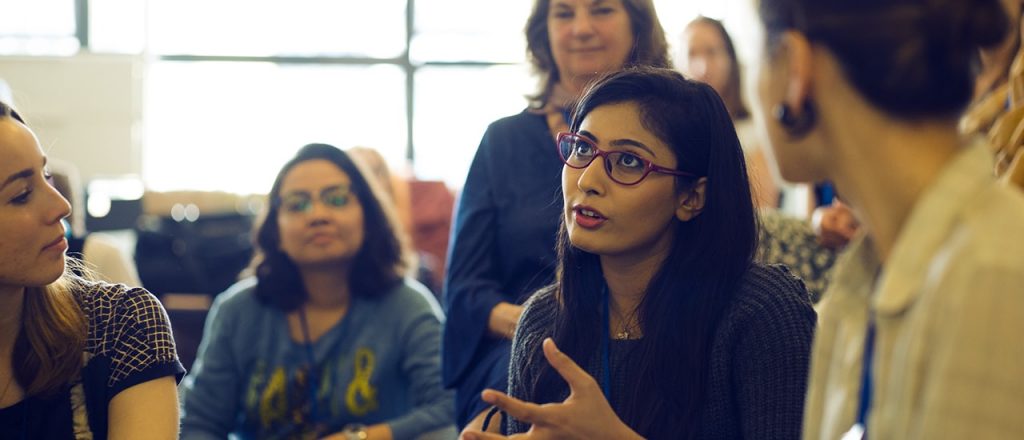
We’re celebrating International Women’s Day this year with great news: The Internet Society welcomes a new Chapter in Lesotho – and the Chapter’s president, vice president, treasurer, secretary, as well as a board member are all talented tech women.
Lesotho is a small landlocked country within South Africa, where less than a third of its population is connected to the Internet. One of the Lesotho Chapter’s key priorities this year is to start an “Internet for Education” project, which aims to encourage five schools to use the Internet to support teaching and to improve the quality of education.
Please join us in welcoming the Lesotho Chapter, then learn about its President Ithabeleng Moreke and other women around the world who are using the Internet to make a difference in their communities!
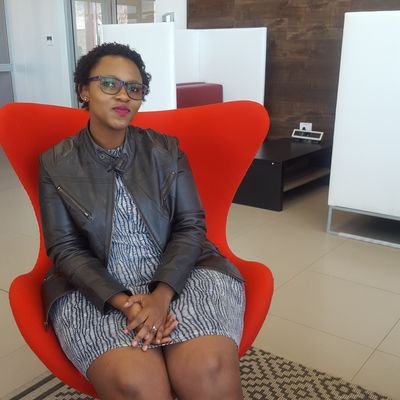
Ithabeleng Moreke enjoys the world of the Internet and all things networks, the technology behind it, and Internet security – and how they affect our everyday lives. She’s worked as network engineer for the government of Lesotho and is now with Vodacom Lesotho.
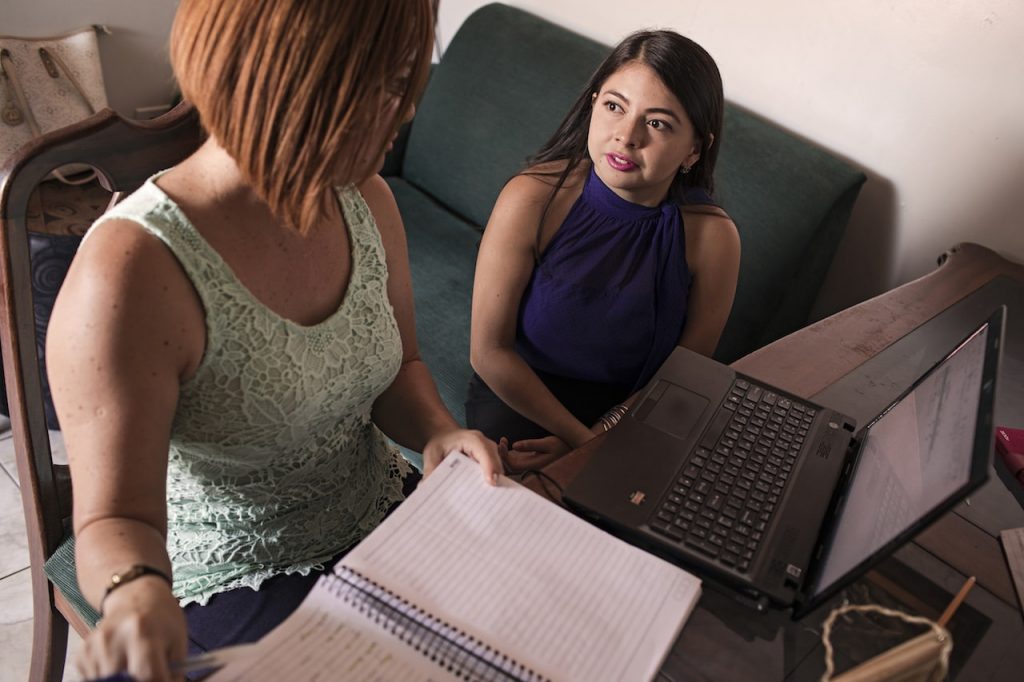
In Jazmin Fallas Kerr’s hometown, Desamparados, Costa Rica, nearly half of all families with women as head of household are in Continue reading
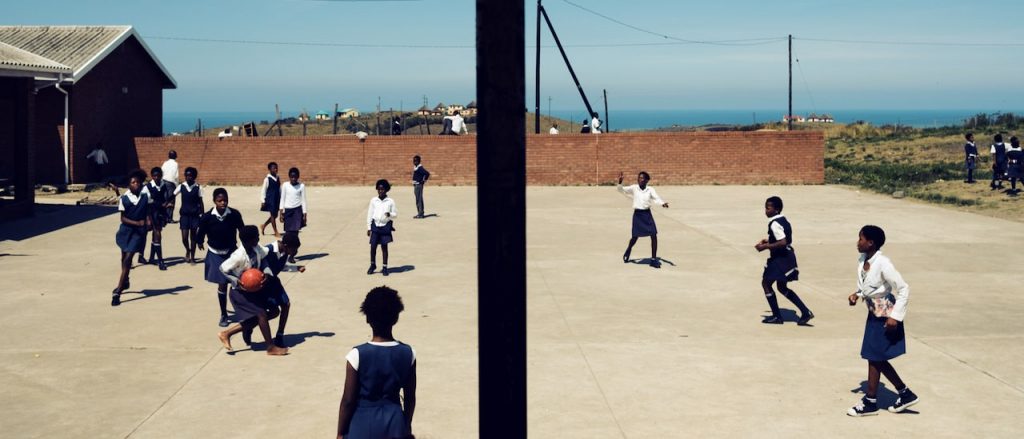
How can the Internet change lives in rural and remote regions? Deutsche Welle, Germany’s public broadcaster, asks these questions in three stories that explore community networks in Zimbabwe, the Republic of Georgia, and South Africa.
Read about the community networks and listen to their stories!
Murambinda Works started as an Internet café in 2002 in the Buhera District in eastern Zimbabwe. Since then it’s grown to provide training in computer literacy for teachers at nearly 218 primary and secondary schools. Murambinda Works, in partnership with the Internet Society and others, is also working to connect eight schools, one nurse training school, and offices of the Ministry of Education.
Tusheti, a mountainous, isolated region in the Republic of Georgia, had been left unconnected by commercial operators. The Internet Society partnered with its Georgian Chapter and other local organizations to help build access to the Internet, which was completed in 2017. (The Tusheti community network was also profiled in The New York Times.)
The Zenzeleni Network in Mankosi, is one of South Africa’s most economically disadvantaged communities. Zenzeleni – which means “do it yourself” in the local language, isiXhosa – was launched in 2012 to provide affordable voice service Continue reading
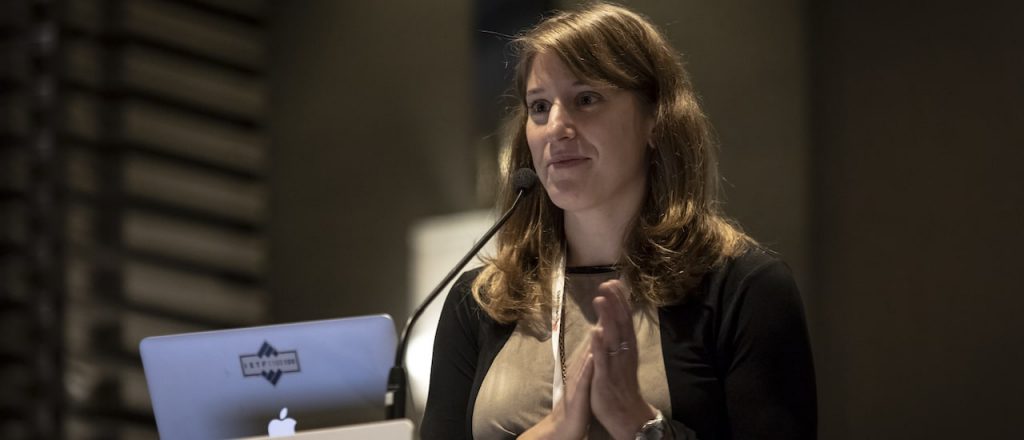
In 2017, the Internet Society unveiled the 2017 Global Internet Report: Paths to Our Digital Future. The interactive report identifies the drivers affecting tomorrow’s Internet and their impact on Media & Society, Digital Divides, and Personal Rights & Freedoms. While preparing to launch the 2019 Global Internet Report, we interviewed Alissa Cooper to hear her perspective on the forces shaping the Internet’s future.
Alissa Cooper is a Fellow at Cisco Systems. She has been serving as the Chair of the Internet Engineering Task Force (IETF) since 2017. Previously, she served three years as an IETF Applications and Real-Time (ART) area director and three years on the Internet Architecture Board (IAB). She also served as the chair of the IANA Stewardship Coordination Group (ICG). At Cisco, Cooper was responsible for driving privacy and policy strategy within the company’s portfolio of real-time collaboration products before being appointed as IETF Chair. Prior to joining Cisco, Cooper served as the Chief Computer Scientist at the Center for Democracy and Technology, where she was a leading public interest advocate and technologist on issues related to privacy, net neutrality, and technical standards. Cooper holds a PhD from the Oxford Internet Institute and MS and BS Continue reading